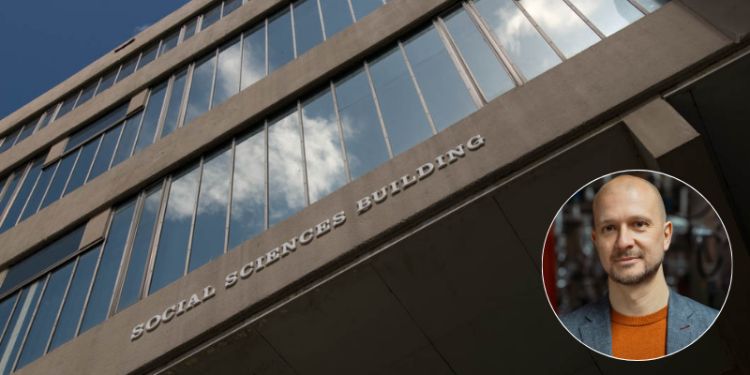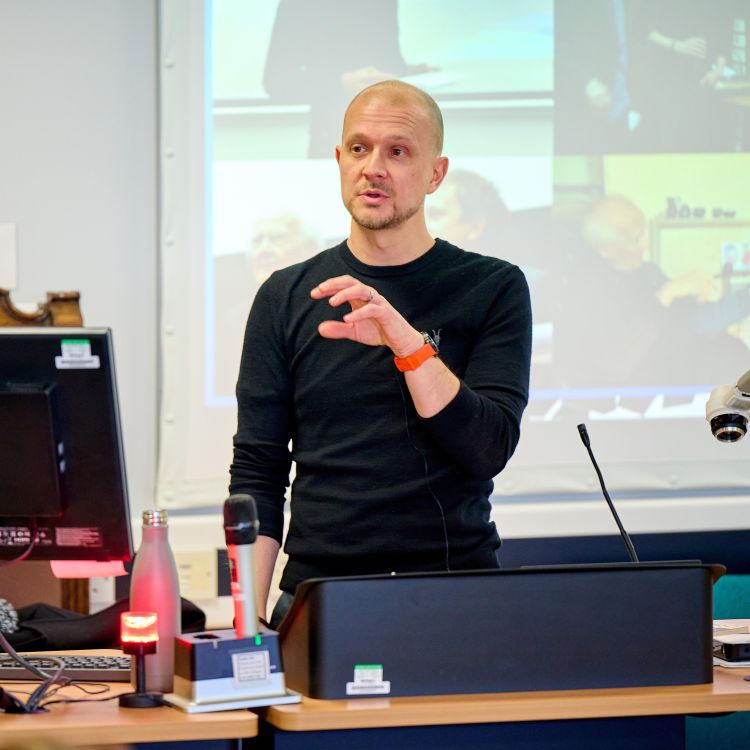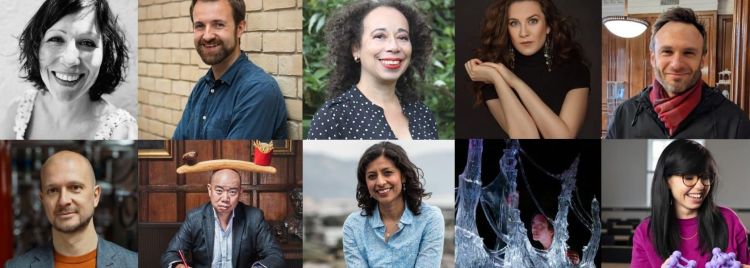Professor Mark Davis named 2025 President of Sociology by British Science Association

The British Science Association has announced Professor Mark Davis as the 2025 President of Sociology.
The British Science Association has announced Professor Mark Davis as the 2025 President of Sociology. Professor Davis, a distinguished figure in Economic Sociology, currently serves as the Deputy Head of School (Strategy) and is the Founding Director of the Bauman Institute. He will deliver his Presidential Keynote at the 2025 British Science Festival, marking a significant milestone in his professional career.
We had the opportunity to sit down with Professor Davis following this exciting announcement to learn more about his past achievements, current initiatives, and future vision.

Professor Mark Davis giving his inaugural lecture
Can you share your journey in academia and what led you to specialise in Economic Sociology?
Yeah sure. I did my undergraduate degree at Newcastle, where I was taught sociology through the lens of political economy and anthropology. So, I’ve always been interested in a broadly interpretivist approach, how social context and relationships shape behaviour.
I found my big inspiration at Newcastle, where I first read Zygmunt Bauman’s work on consumerism and liquid modernity. I came to Leeds because of his time in the School and studied my MA and PhD here exploring different dimensions of Bauman’s work.
After that, I founded the Bauman Institute in 2010 and have continued to publish on aspects of his work as part of my wider scholarship. I’ve always wanted to demonstrate the practical application of theory to substantive problems, being committed to a purposeful and positive form of public sociology.
What were some of the pivotal moments or achievements in your career that you believe prepared you for this role?
I guess I’m probably best known for leading the research that co-created Community Municipal Investments (CMIs) with industry and local councils. Wrapped as Local Climate Bonds, the model offers UK councils a new way to fund place-based net zero projects and has so far raised over £30M, which is something I’m very proud of.
I’m also working with a stellar team of academics and public sector collaborators to use insights from relational sociology to solve the domestic retrofit challenge, which is urgent in climate terms. I’m co-leading this work with Steve Hall (York) and Lucie Middlemiss (Leeds) as part of the wider Relational Energy Group (REG) that we established last year. We’re busy co-designing a project with national and regional government to use our relational approach to deliver retrofit in the North.
On the role specifically, obviously it’s a real honour and I’m genuinely humbled to be invited to do it. Some major figures, such as Gurminder K Bhambra and Danny Dorling, have held the role previously so I’m aware of the responsibility it brings. I’ve done a lot of public speaking and media, so that side of things doesn’t daunt me too much!
What are your primary goals in this new role?
I guess I just want to represent our discipline in a way that my fellow social scientists would appreciate. The role involves helping to shape the 2025 Festival of Science and, as my colleagues at Leeds know, I’m fond (a bit too fond, maybe?) of finding creative ways to spotlight the brilliant work they’re doing – so that side of things is exciting.
My main goal is that those attending the Festival leave thinking that Sociology and Social Policy are making a vast and significant contribution to the world being a better place for everyone. At a time when the wider geopolitical context is pushing hard against the value of Universities, that feels like an important message to put across.
Please can you share any advice for current students, or early career researchers, looking to make an impact in the field?
I’m asked to speak about impact a lot! For me, it’s one of the most enjoyable aspects of being an academic – to feel truly helpful to others who are asking the same questions or facing similar challenges. That’s as true for our brilliant students at Leeds, wrestling with ideas and concepts for the first time, as it for industry or government partners. Using sociology to reframe a policy problem or an industry challenge to open up a different range of solutions is what still excites me about the work we do.
The best advice I can give is to get out there! Go find those who might need what you know. Work out together what the shared pain points and objectives might be and then co-create projects to build solutions. It’s not an easy process, and requires a lot of time and emotional energy to sustain key relationships with partners, but in my experience it is worth the effort and can be hugely rewarding.
Anything else you would like to share?
Just that I hope me holding this role for 2025 sparks further interest in the social science work being done at Leeds. There are very real and deep challenges to the sector right now, so I hope it’s a moment for this work to get the attention it deserves.
I want to say huge thanks to Rob Meadows (Surrey) for communicating the invite and guiding me through the process, as well as to the wider Festival Team. Thanks also to everyone who’s been in touch to offer congratulations. I’m so grateful for their encouragement, support and for enjoying the moment with me. It means a lot!

British Science Association 2025 presidents
Connect with SSP on LinkedIn and BlueSky to keep up-to-date with latest news from the School.




